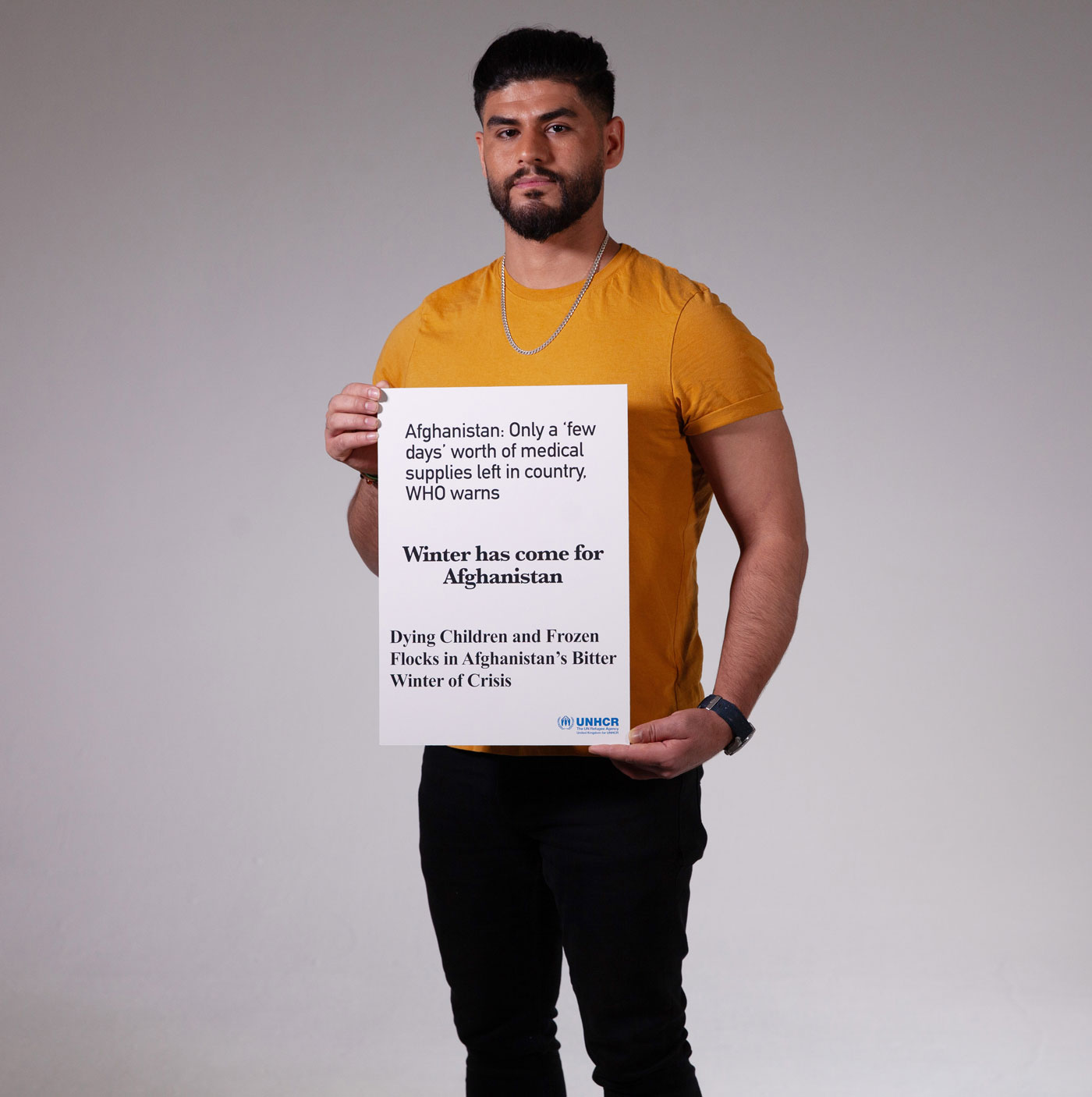Najeem
“Winter in Afghanistan is bitterly cold, and made even more challenging by electricity shortages and a lack of hot water.”
“Winter in Afghanistan is bitterly cold, and made even more challenging by electricity shortages and a lack of hot water.”

My name is Najeem; people call me Najee. I’m from Panjshir in Afghanistan and grew up in a big family in the country’s capital city, Kabul.
I fled Afghanistan when I was 18 years old.
I’m an artist who uses graffiti and art as a form of self-expression. I once promoted peace through my art. People with aspirations like mine, who sought to convey themselves through art, faced dangerous conditions.
My journey from Afghanistan to the UK was perilous. I wasn’t even certain I’d make it out of Afghanistan alive. I endured countless harrowing nights, often sleeping in forests, on the streets, in tunnels and even on train tracks, with close encounters of nearly drowning in the water.
My experience as an immigrant in the UK was undeniably stressful. I lived in and out of hostels, sharing facilities with numerous people, unable to prepare my own meals or earn my own income. It took one and a half years for me to finally achieve some stability. During that time, my only outlet was attending English classes.
Life is finally going well here in the UK. I’m continuing my studies, and I successfully completed my chef training with Migrateful.
Cooking has always been my passion. Back in Afghanistan, I used to cook for my family, and even my friends would call me over to prepare meals for them.
I’m very passionate about culinary art. I always see art in food.
I am very proud of Afghan food. Despite having limited ingredients, the meticulous care we put into preparing our dishes elevates them to one of the most flavourful cuisines in the world.
My favourite Afghan dishes to make are Mantu, a dish very similar to dumplings, and Borani Banjan, made with aubergine.
What I want people to know about me is that I enjoy helping others. During my time as an asylum-seeker living in a hostel, I regularly provided assistance by translating and guiding people because I am proficient in several languages, including Urdu, Dari, Pashto, English, Kurdish and Turkish. Additionally, I learned sign language during my stay in the hostel.
It’s crucial to learn the stories of refugees and asylum-seekers from Afghanistan, as they are remarkably talented individuals with a rich history. Unfortunately, our homeland is suffering, and it often appears that the world is indifferent to our struggles.
Each refugee has a unique story to share, and taking the time to sit with us and listen will help you understand why empathy and support for refugees are vital.
Standing with refugees is important because we have already endured significant hardships. We fled our homes in search of safety and a better future.

Winter in Afghanistan gets extremely cold.
There’s often not enough electricity and hot water. Prices for essentials go up during this time. To stay warm, people burn wood and sometimes car tyres, which isn’t good for the environment.
Since money is tight, people in Afghanistan use whatever they can find to keep warm.
I’d describe winter there as harrowing.
Winter in Afghanistan
Hundreds of thousands of families forced to flee are facing a brutal winter far from home, including thousands of internally displaced people within Afghanistan.
Displaced families living in informal tented settlements or damaged buildings have little protection from freezing temperatures, rain and snow, putting them at risk of hypothermia, frostbite and life-threatening respiratory diseases. Others will struggle to keep warm in buildings without power and exposed to the elements due to shelling amidst sub-zero temperatures.
This winter, UK for UNHCR is calling for donations to help provide essential support, such as blankets, fuel and emergency cash assistance, to families who remain displaced after fleeing their homes in Ukraine.

